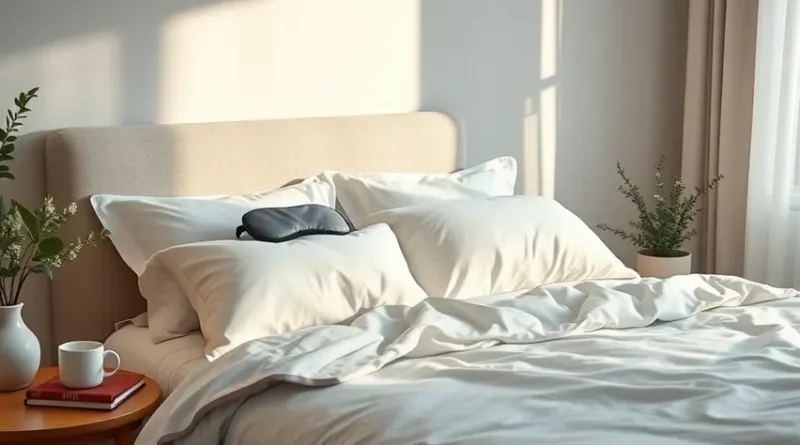Benefits and Ideal Duration of Power Naps
In our fast-paced world, the simple act of taking a nap often gets overlooked or dismissed as a luxury rather than a necessity. However, there’s a growing body of research that suggests power naps could be a game-changer for your productivity, mental clarity, and overall health. Whether you’re a full-time professional, a student juggling numerous responsibilities, or a stay-at-home parent trying to manage multiple tasks, understanding the benefits and ideal duration of power naps can help you harness their potential.
What is a Power Nap?
A power nap is typically a short sleep taken during the day, usually lasting anywhere from 10 to 30 minutes. This type of nap falls between the light stages of sleep and aims to refresh and rejuvenate the individual without entering deeper sleep cycles, which can lead to grogginess upon waking up.
Benefits of Power Naps
1. Enhanced Alertness and Performance
One of the most immediate benefits of taking a power nap is a marked improvement in alertness and performance. Studies have shown that even a brief nap can significantly enhance cognitive capabilities, including vigilance, reaction time, and logical reasoning. This can be particularly beneficial in workplaces where quick decision-making is essential.
2. Improved Memory Retention
Sleep plays a critical role in memory consolidation. Power naps can help reinforce the learning and retention of new information. If you’re cramming for exams or learning a new skill, a well-timed power nap might make a significant difference in how much of that information sticks.
3. Boosted Mood
Short naps can also lead to an improvement in mood. A quick rest can serve as an effective reset button, helping to relieve stress and recharge emotional energy. It’s often easier to regain a positive outlook after a brief nap, leading to increased productivity and better interactions with colleagues or loved ones.
4. Enhanced Creativity
Many people experience creative blocks, and taking a power nap can help clear the mind and generate new ideas. Naps have been associated with increased levels of creative thinking and problem-solving abilities, making them a valuable tool for anyone involved in creative work.
5. Health Benefits
Moreover, power naps can contribute to better overall health. Chronic sleep deprivation is linked to several health problems, including increased stress levels, heart disease, and weakened immune function. Integrating power naps into your daily routine can assist in mitigating these issues, resulting in improved long-term health outcomes.
Ideal Duration for Power Naps
While the duration of a power nap can vary depending on individual needs, research suggests that the ideal length lies between 10 to 20 minutes for maximum benefits. Let’s break this down:
10 Minutes
A 10-minute nap is short enough that most people can easily fall asleep yet brief enough to avoid deep sleep. This duration can provide an immediate boost of alertness and capability without the risk of waking up groggy.
20 Minutes
A 20-minute nap is seen as the sweet spot for many, allowing for slight progression into lighter sleep stages without delving into deep sleep. You can experience improved focus and performance right after waking.
30 Minutes or More
While 30-minute naps can also be beneficial, they run the risk of transitioning into deeper sleep, leading to sleep inertia or grogginess. It’s crucial if you opt for a more extended session to ensure you have enough time to wake up fully before resuming activities.
Tips for an Effective Power Nap
1. **Choose the Right Time**: The best time for a nap is usually early to mid-afternoon when energy levels naturally dip after lunch.
2. **Create a Comfortable Environment**: Ensure you are in a quiet, comfortable setting with minimal distractions. Dimming lights or using an eye mask can help signal to your brain that it’s time to rest.
3. **Set an Alarm**: To maximize the benefits of a power nap and avoid oversleeping, setting an alarm is crucial. This can help you stick to the ideal duration.
4. **Avoid Frequent Late Afternoon Naps**: Taking daily power naps late in the day can interfere with your nighttime sleep schedule, leading to further sleep issues.
In conclusion, power naps can serve as an incredible tool to enhance productivity, creativity, mood, and overall health. The ideal duration depends largely on individual preferences and availability but typically benefits most from being in the range of 10 to 20 minutes. So the next time you find yourself feeling fatigued or mentally blocked, consider taking a power nap – it might just be the break you need to recharge your productivity.

